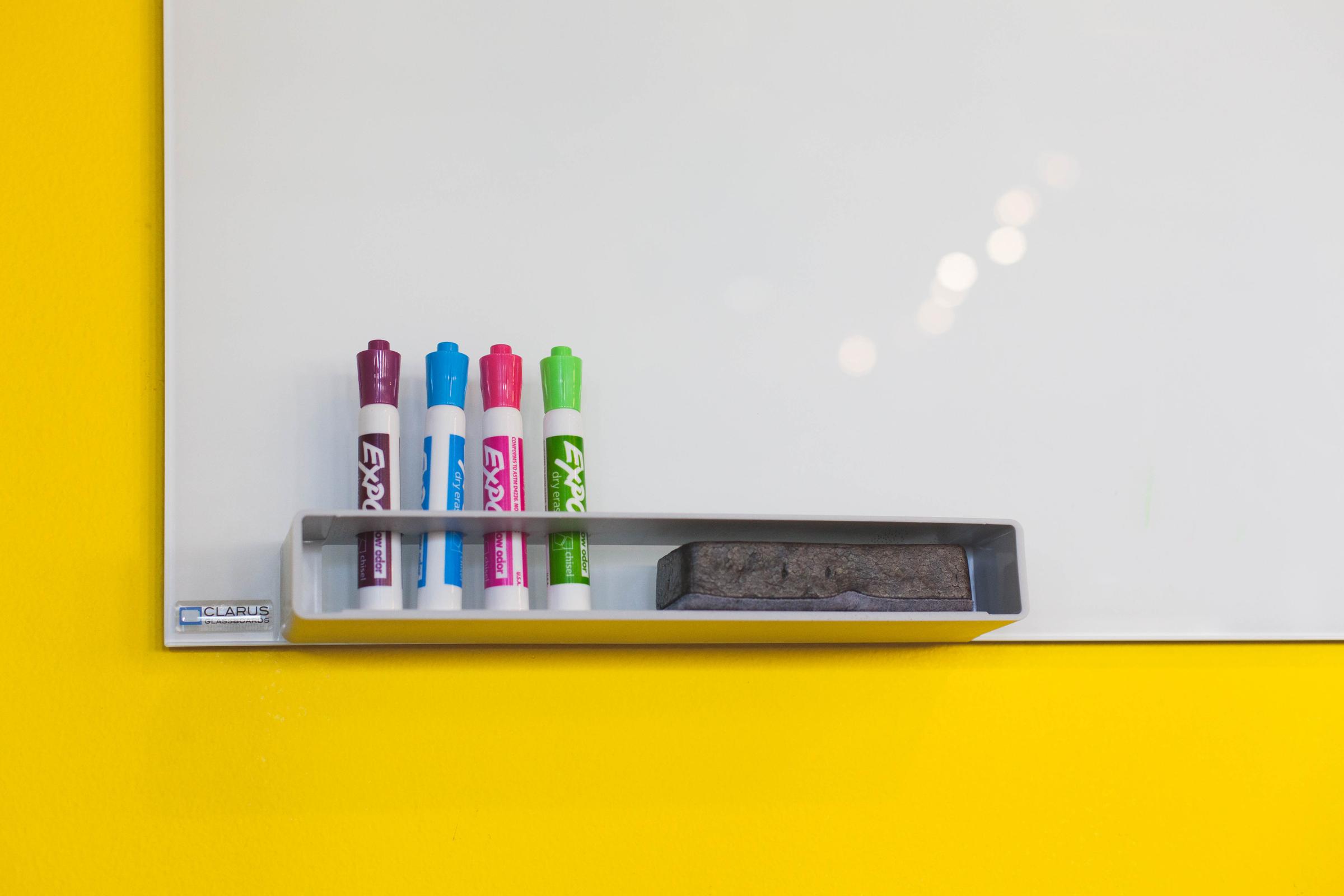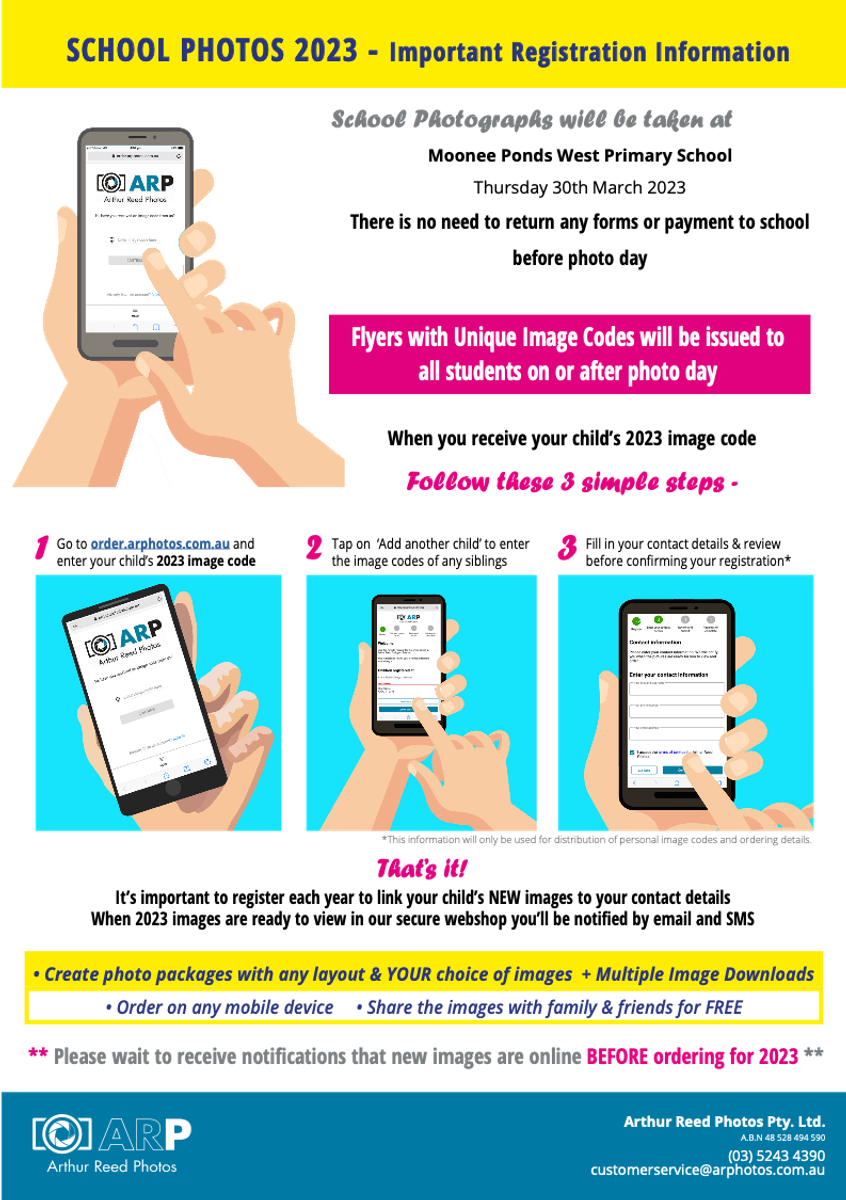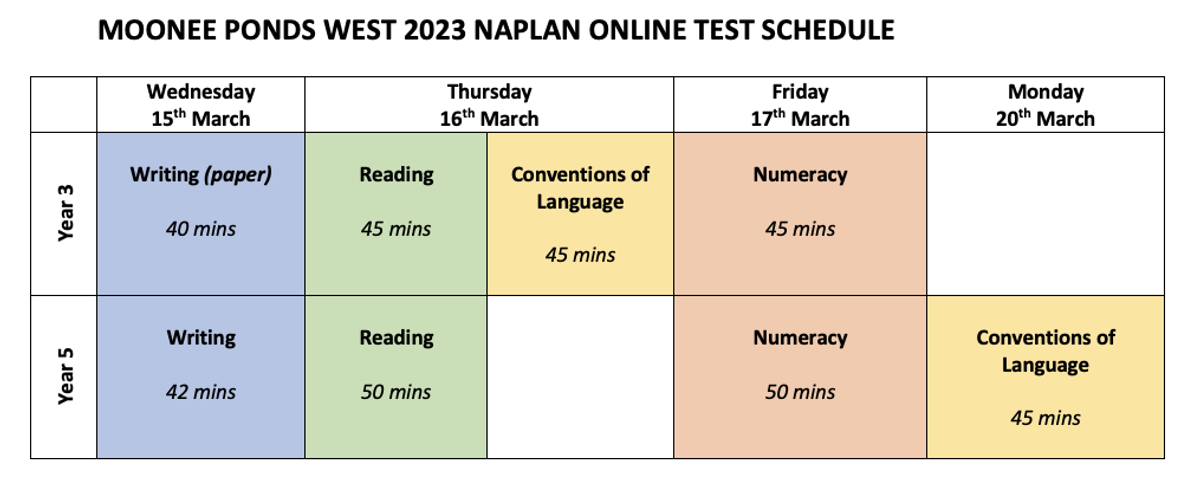Education News

School Photos 2023
Annual school photos including sibling photos will be taken by Arthur Reed Photos on Thursday 30th March 2023.
There is no need to return any forms or money to school.
Unique image codes will be issued to all students on/after photo day so families can register online to view images when they become available in the webshop.
Registration is simple, just follow the 3 simple steps on your child’s personalised flyer once you receive it and remember to add the codes for all your children attending this school.
Even if you registered last year, it’s important that you do again this year using your child’s 2023 image code to link their images for the current year with your contact details.
When images are ready to view and in the webshop, all parents who have registered will be notified by SMS and email.
Once registered, please wait for notification that 2023 images are online to view before making your purchase.
News from the Assistant Principal
NAPLAN 2023
A reminder that NAPLAN starts this week for Year 3 and Year 5 students.
Our NAPLAN test sessions start tomorrow (Wednesday 15th March), with both Year 3 and Year 5 students completing the Writing assessment. Our NAPLAN sessions will take place between Wednesday March 15th and Friday 24th March, with ‘catch up sessions being held on Thursday 23rd and Friday 24th March. Please see your classroom teacher, Amanda or Jarrod should you have any questions about NAPLAN.
Our test schedule is as follows:
Children and sleep
Establishing good sleep hygiene has multiple benefits to children and their families. Below is an excerpt from the Raising Children Network. It contains information relating to the importance of children’s sleep, and suggestions on how to establish effective bedtime routines. You can find the full article here: https://raisingchildren.net.au/pre-teens/healthy-lifestyle/sleep/school-age-sleep
Why sleep is important for children aged 5-11 years
When your child sleeps well, your child will be settled, happy and ready for school the next day. That’s because good-quality sleep helps your child concentrate, remember things, manage emotions and behave well. This all helps your child learn well.
Getting enough sleep is also important for your child’s health. That’s because it strengthens your child’s immune system and reduces the risk of infection and illness.
Sleep: what to expect at 5-11 years
At 5-11 years, children need 9-11 hours sleep a night. For example, if your child wakes for school at 7 am and needs approximately 10 hours sleep per night, your child should be in bed before 9 pm.
Some children fall deeply asleep very quickly when they go to bed. Others sleep lightly, fidgeting and muttering for up to 20 minutes, before getting into deep sleep.
Children have different kinds of sleep during the night. The first few hours of sleep are usually the deepest. Most dreams happen in the second half of the night.
Puberty affects children’s sleep. Sleep for children around 12 years and older might mean going to bed and waking up later, but they still need plenty of good-quality sleep.
How to help children sleep well
A good night’s sleep is about getting to sleep, staying asleep and getting enough good-quality sleep. Here are ideas that can help your child get the sleep they need.
Bedtime routineA bedtime routine is very important at this age. It helps your child wind down from the day.
For example, a child who normally goes to bed at 7.30 might have a bedtime routine that looks like this:
- 6.45 pm: put on pyjamas, brush teeth, go to the toilet.
- 7.15 pm: quiet time in the bedroom with a book and a bedtime story or quiet chat.
- 7.30 pm: goodnight and lights out.
Relaxing before bed
After a big day at school, your child might still be thinking about the day’s events and worries. If your child’s mind is still busy at bedtime, it can cause a restless night or bad dreams.
You can help your child relax for sleep and sleep better by making time for calm, quiet activities in your child’s bedtime routine. For example, you could play gentle music, read a story together or encourage your child to have a bath before bed.
Good daytime and night-time habits for better sleepThese habits might help your child sleep better:
- Keep regular sleep and wake times, even on the weekend.
- Turn computers, tablets and TV off an hour before bedtime.
- Have a quiet and dimly lit place to sleep.
- Get plenty of natural light during the day, especially in the morning.
- Avoid caffeine in tea, coffee, sports drinks and chocolate, especially in the late afternoon and evening.


